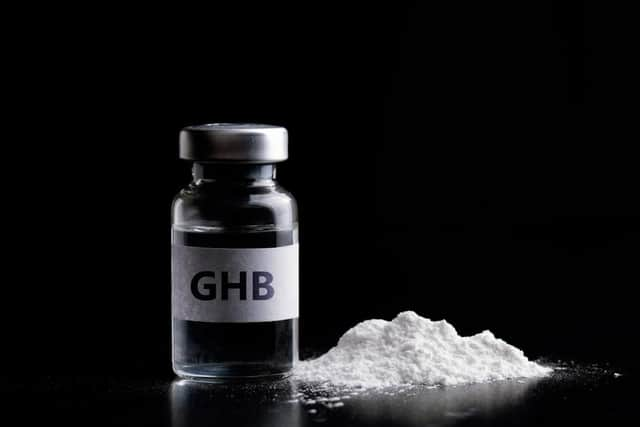GHB: what is the drug, why has it been reclassified from Class C to B - and who is Stephen Port?
and live on Freeview channel 276
GHB will become a Class B drug after Home Secretary Priti Patel said it has been used in "truly sickening crimes".
But what is GHB and what does its reclassification mean?
Here’s what you need to know.


What is GHB?
GHB - which is short for gamma-hydroxybutyric acid - is a central nervous system depressant that causes drowsiness and reduces heart rate, according to the Centre for Addiction and Mental Health (CAMH).
Advertisement
Hide AdAdvertisement
Hide AdThe recreational club drug, which is also known as liquid ecstasy, is typically bought from street dealers or the internet. It acts as a sedative and lowers inhibitions, giving users a sense of euphoria.
However, it can also make them feel sleepy and put them at risk of overdose and death.
GHB is currently a class C drug, which means it's illegal to have for yourself, give away or sell.
Possession of the drug can get you up to 2 years in prison, an unlimited fine or both, explains drug information website Frank.
Advertisement
Hide AdAdvertisement
Hide AdSupplying someone else with the drug can also get you up to 14 years in prison, an unlimited fine or both.
Penalties depend on the type of drug or substance, the amount you have, and whether you’re also dealing or producing it.
The maximum penalties for drug possession, supply - which includes selling, dealing or sharing - and production depend on what type or ‘class’ the drug is.
The reclassification of GHB to a Class B drug means those using it illegally will face tougher penalties.
Who is Stephen Port?
Advertisement
Hide AdAdvertisement
Hide AdStephen Port was sentenced to a full life term in 2016 after being convicted of murdering four young men at his flat between 2014 and 2015.
Port met his victims online before luring them to his flat in Barking, East London, where they were drugged and raped.
The men were all given lethal overdoses of GHB - which is also known as the ‘date rape’ drug’.
Why is GHB becoming a Class B drug?
The decision to reclassify GHB as a Class B drug comes after a report in November by the independent Advisory Council on the Misuse of Drugs, which found a "concerning increase" in the harm caused by the drug.
Advertisement
Hide AdAdvertisement
Hide AdAt the same time, the Office for National Statistics (ONS) also revealed that GHB was linked to the deaths of 219 people over a 10 year period.
GHB was also linked to thousands of emergency hospital admissions each year.
The Home Secretary, Priti Patel, also commissioned a review in January 2020 as concern grew over the criminal use of GHB and similar substances.
Ms Patel said: “GHB and related substances have been used to commit some truly sickening crimes, including murder, sexual assault and robbery.
Advertisement
Hide AdAdvertisement
Hide Ad“I will do everything in my power to protect people from harm, which is why I am tightening restrictions around these dangerous substances.
What does the reclassification of GBH mean?
The reclassification of GHB from a Class C to B drug “will make the drugs harder to access and introduce tougher penalties for possession,” Ms Patel adds.
The Home Office said it will also “bring forward legislation” around two substances that can be converted to GHB on ingestion, these being gamma-butyrolactone (GBL) and 1,4-butanediol (1,4-BD).
The department said this will mean that “those wishing to possess them for legitimate industrial purposes will require a licence”.
Advertisement
Hide AdAdvertisement
Hide AdThe Home Office said necessary legislation will be brought forward “when parliamentary time allows”.
For possession of a class B drug, the maximum penalty an offender can receive is five years in prison, an unlimited fine, or both.
Supply and production of a Class B drug can result in up to 14 years in prison, an unlimited fine or both.